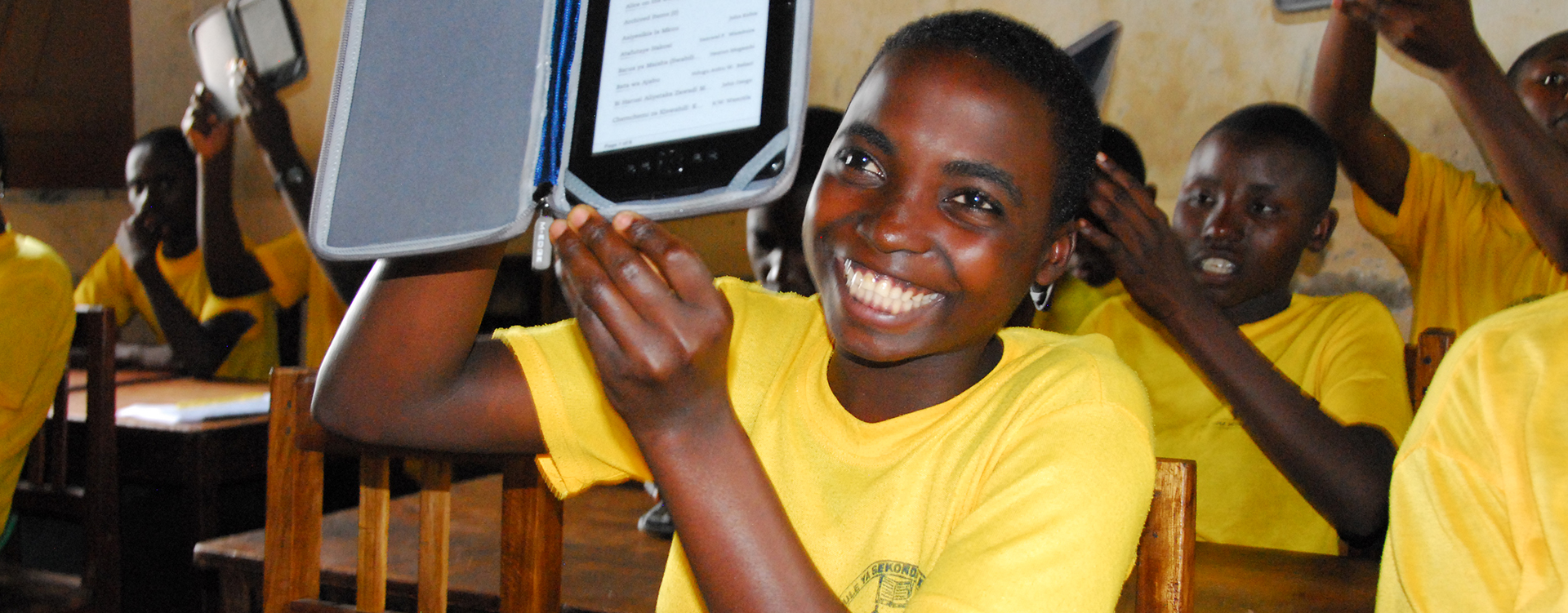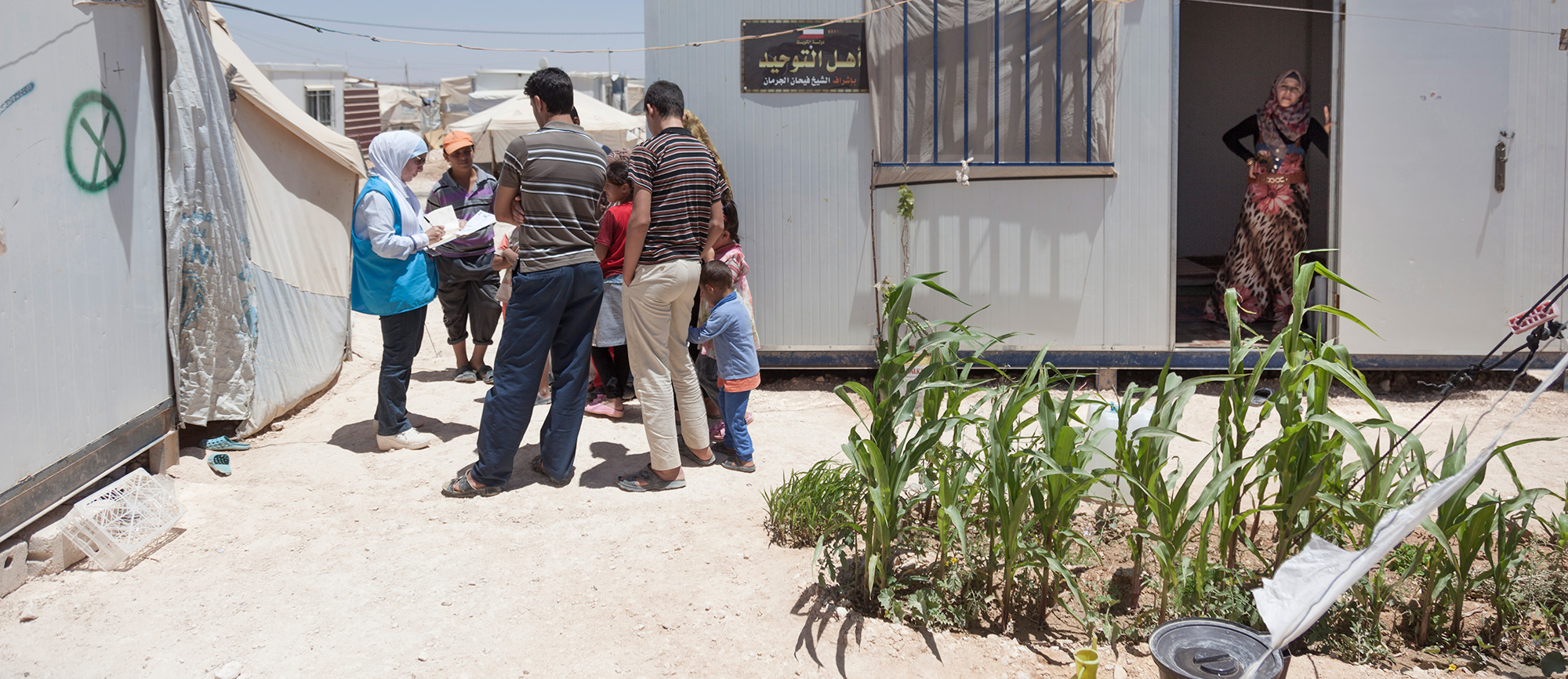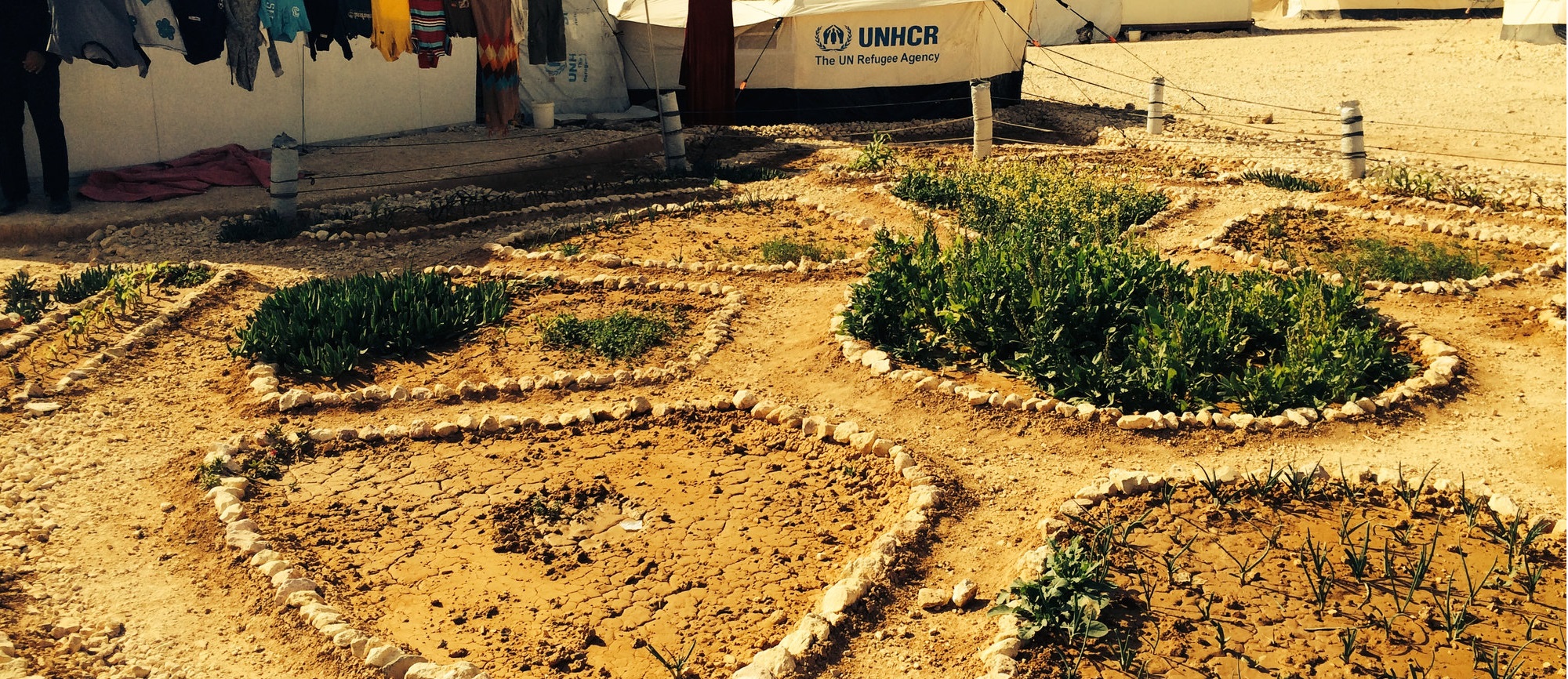1. Define challenges
For refugee children, a shot at a better tomorrow
For refugee children, going to school every day is sometimes the only snippet of normalcy in a world of turmoil. In the eyes of their communities, the opportunities afforded through education are priceless.
But in refugee settlements like Mpanda and Mishamo in rural Tanzania, even going to school was no guarantee of a better future. Plenty of children in this country finish primary school unable to read; 43 percent of all Tanzanian fifth graders cannot pass a basic Swahili test.
The disappointing numbers make sense: In many Tanzanian schools, there are so few textbooks that the only person to see one is the teacher. And in refugee situations the problems are only magnified; classrooms are routinely packed with up to 70 students to every teacher, and educators who step up to help are often undertrained and completely under-resourced.
With children comprising almost half the world’s refugees, UNHCR is committed to giving them not just protection and care today, but a shot at a better tomorrow. Part of that is making sure that children improve their literacy by actually getting to read.
So we teamed up with UNHCR’s Education Unit to find a way to improve children’s reading even where books are rare, and set them up for the futures they deserve.

2. Identify solutions
e-Readers as a means to improving literacy skills
Together with the Education Unit, our Learn Lab looked for fresh ideas about the best ways to empower refugees and their children with educational opportunities and improve literacy.
With clear interest from refugee communities in using Information Communication Technologies (ICT), the Education Unit partnered with global not-for-profit Worldreader, whose mission is to use mobile technology to give millions of students in sub-Saharan Africa access to books.
Collaborating as partners, our Learn Lab, the Education Unit, and World Reader developed an idea on how to cost effectively get large quantities of books to refugee children in schools that often had none. We would go digital.
Low-cost e-readers and tablets are able to store thousands of digital books and texts, and titles are available across multiple languages and reading levels. They have a long battery life, are lighter than a paperback, and the simplest devices feature a high-contrast monitor that’s easy to read even in bright sunlight. They’re also not too expensive: the average Amazon Kindle, for example, costs less than $100.
E-readers appeared to be the clear solution for filling refugee children’s major need for books.
3. Test solutions
Technology in the classroom
But how would students and teachers respond to the new technology? Would kids find the content interesting? Could teachers master e-readers in their classrooms?
We decided to test it out by sending e-readers — some with 3G and others with wifi capabilities—to refugee children in Tanzania.
They pre-loaded the e-readers with a wealth of international and local e-books, including storybooks and textbooks the pupils needed for school.
To make sure the devices were durable enough to last through plenty of rough motorbike rides and even the occasional goat’s nibble, they came encased in a rugged shell. And they came with lights to encourage kids to read even after school and chores.
Even more, Tanzanians in refugee settlements and the surrounding communities got access to the Worldreader Mobile service, which allowed them to read anything they wanted from a library of African and international books on technology they already had at their fingertips: their cell phones.
Worldreader helped our Learn Lab and the Education Unit to provide teachers with several days of hands-on training on using the digital resources to make sure they were successfully integrated into refugee schools.
Then, staff watched eagerly as the young refugees and their schoolmates and teachers used the e-readers.
In the hands of the young students, the technology made a big difference.
Young refugee students and their classmates in Tanzania were reportedly more cheerful when using the readers. The anecdotal evidence matched findings from previous pilots launched by Worldreader, which found that children who received e-readers in Ghana showed increased enthusiasm towards reading, and improved their technological skills. They even had improved performance on standardized tests in reading, writing and English proficiency.
Teachers and students both learned to use the technology quickly, although as expected, the young people truly led the way.
Learning opportunities were even extended to the community in some locations, when parents, siblings and supporters were invited to participating schools to use the e-readers themselves.

4. Refine solutions
Going local
Without question, the e-readers were a huge hit. But there was room for improvement.
In some schools, using English for the instructions proved problematic for students who used Swahili in the classroom.
Recognizing a greater need for local texts, the Education Unit is now working with Worldreader to host a writing competition to digitize some of the stories that students and community members write themselves—promoting creativity and capturing East Africa’s active storytelling culture.
It is also expanding the number of e-books available for free through Worldreader Mobile. There are now more than 2,300 titles available to anyone with a basic phone and a 2G connection.
5. Scale solutions
Solar-powered e-readers?
Meanwhile, our Learn Lab continues to work with the Education Unit to test the e-reader solution, and is looking at adding partners who are interested in taking the technology to scale as content partners.
We are also exploring options for including solar charging capabilities in the kits to avoid reliance on electricity. It’s in resource-scarce areas with challenges like this that technology like digital books can make a huge impact.
With the help of our Learn Lab, the Education Unit and Worldreader hope to scale up efforts in the near future. Nearly all the classrooms that tested the e-readers reported that they did not have enough to serve all the children in their schools.
They’d love nothing better than to get their hands on more technological solutions like e-readers and tablets, and to see the results reflected in their students’ ability to read and love of learning.









